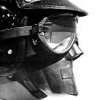Hello
I'm not a newcomer to programming, I've been coding for a few years now and am pretty comfortable with it, I even do some freelance work making android apps when I can find jobs willing to pay more than $2/hour. However almost all my experience is in Java. I do know some VERY basic python/visual basic/ruby, and i used to know the fundamentals of c++ but that was a while ago and I don't remember anything.
My goal right now is to improve as a programmer overall, and I think for me learning a new language, especially c++, would help me a lot in that way. It's hard for me to have a good broad understanding of programming when the only language I know is Java, I can't tell which things are just 'programming things' and which things are 'java things,' if that makes any sense to you. I think C++ would be good for me because many people claim learning c++ necessarily teaches you a lot about how programs and programming works in general and gives you a better understanding of lower level concepts.
So right now I am looking for some awesome resources, primarily books(because with a nice big book I have at least a month worth of organized, properly ordered and cohesive lessons that I can follow. For me it's very important to have a strict structure for how I'm going to learn something and following a book from beginning to end is the best way to do that without paying for expensive courses. If left on my own to use various online resources I'll end up procrastinating and wasting time and never learning anything, that's just how it is). What I'm looking for most is a book that can give me the deepest and most thorough understanding of the language. I don't want one of those "Learn c++ in 24 hours" books or anything, I'm not in any kind of rush and I want to get as much as possible from my first c++ book. Let me put it this way, I want the book that will leave me with the best grasp on c++ once I've carefully went through the entire book page by page. It'd be nice if the book left out some things that I already know as a Java programmer, but I'd rather waste some time going over stuff that I already know in a beginner programmers book then save myself some time but ultimately miss out on what would've been a better book for my purposes. It doesn't have to be a book, I'd appreciate links to any kind of resource you think might be useful for me, but keep in mind what I said earlier about how I need a structured learning resource that I can force myself to follow so that I don't waste a ton of time messing around glazing over tons of different resources but not really following through with any of them. I guess online college courses like the ones at ocw.mit.edu would be great for me as well, if you know of anything like that that could replace or supplement a good c++ book let me know!
Okay thanks for the help everyone. If you have any other tips relevant to my situation I'd love to here them, anything that will help me learn more or learn faster.












